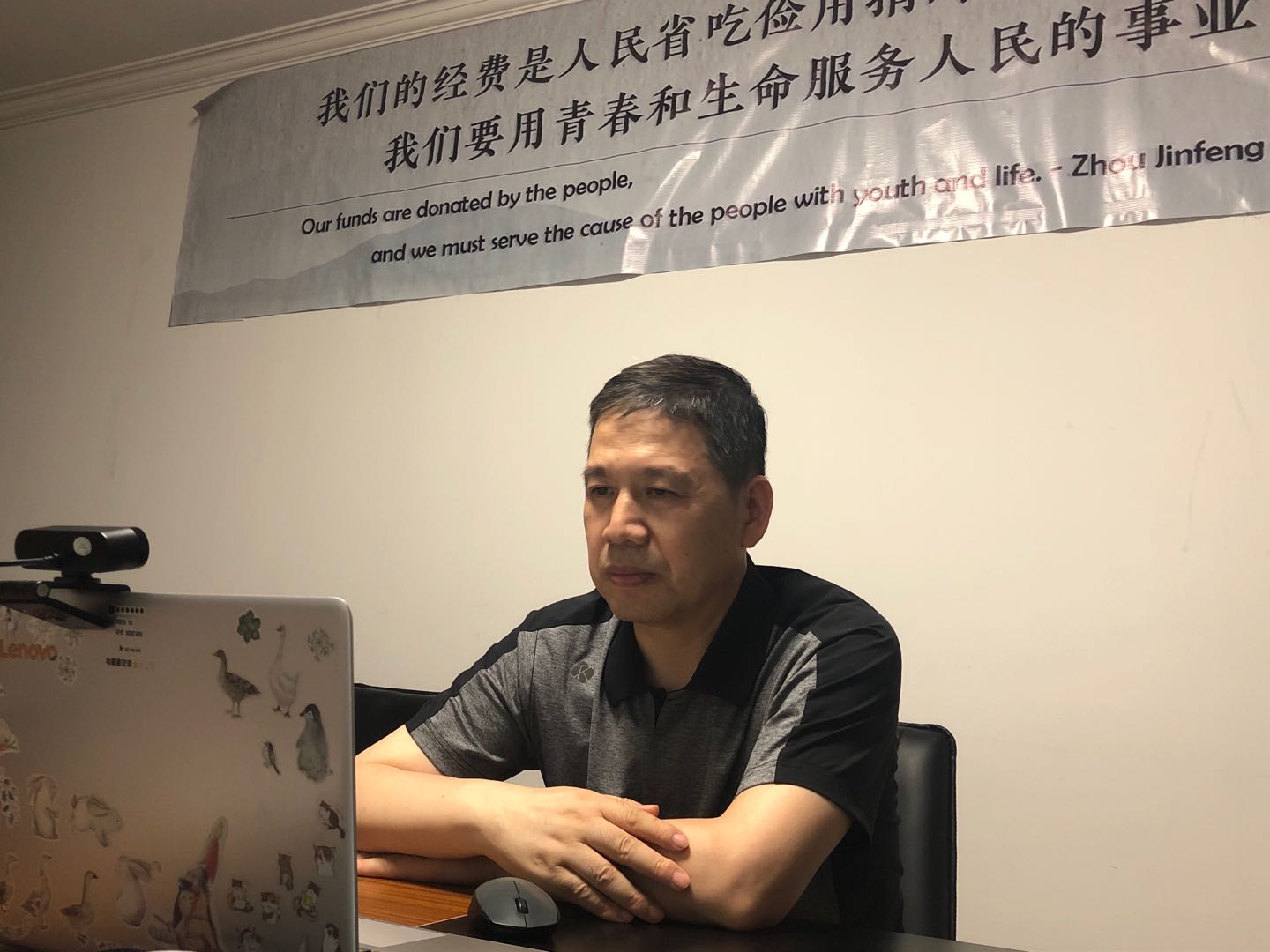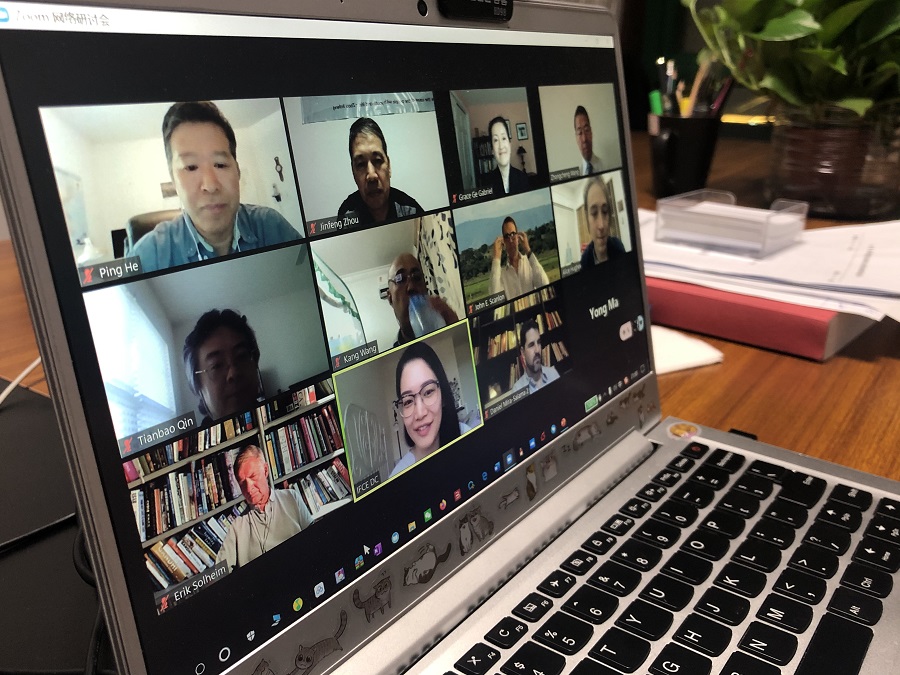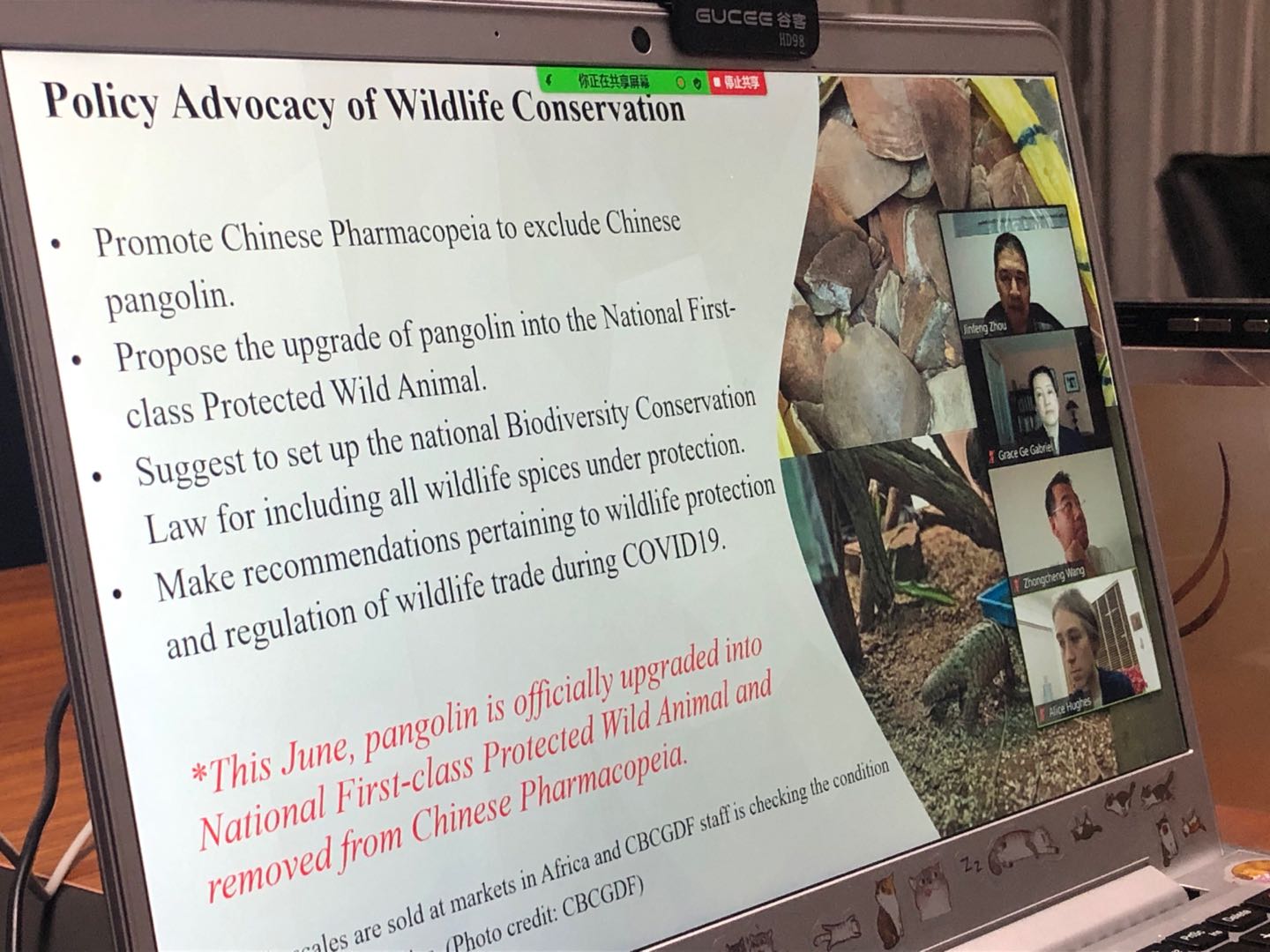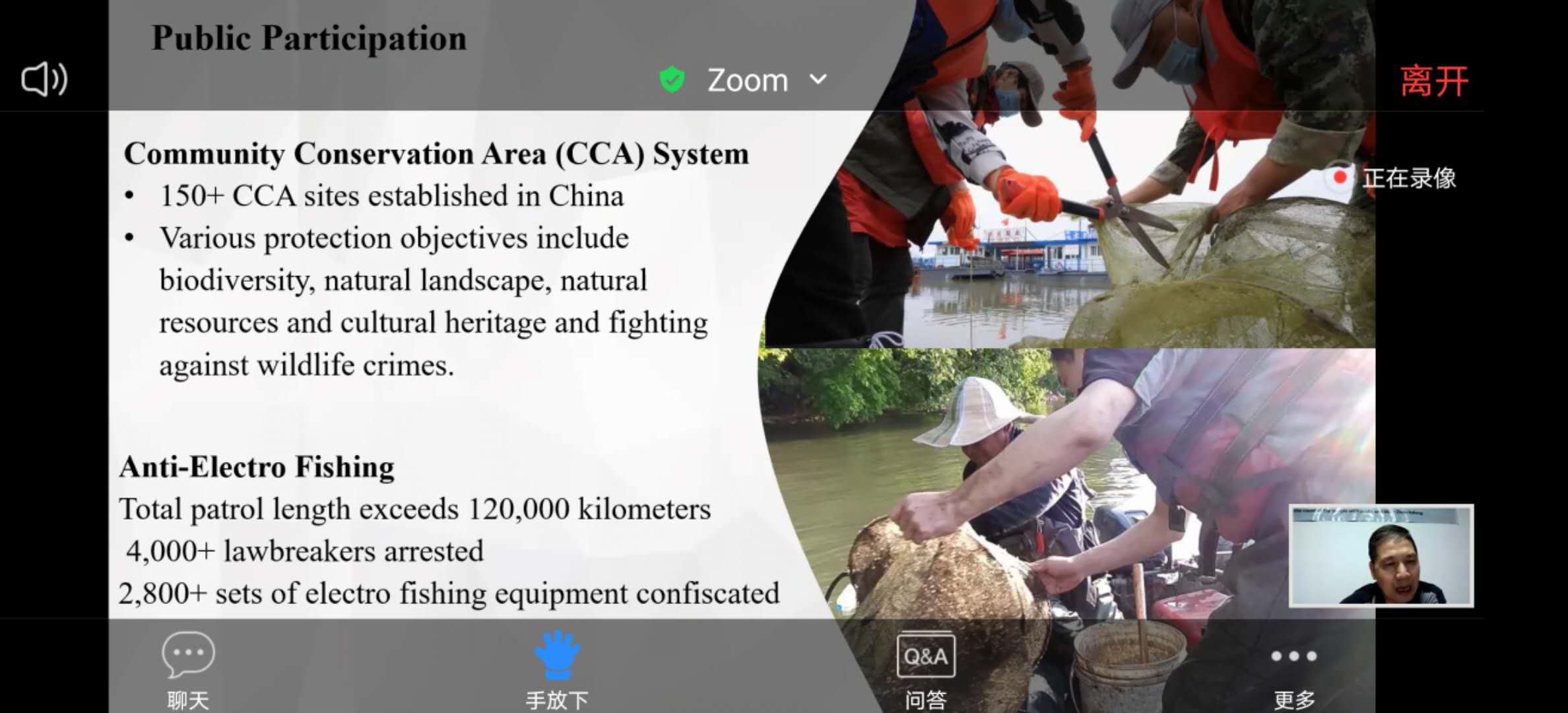On July 17, the "Wild Species Trade and Legal Response" expert dialogue webinar hosted by the Legal Work Committee of China Biodiversity Conservation and Green Development Foundation (CBCGDF) was held smoothly. The seven guests from around the world shared their opinions on wildlife protection, wild species trade and legal response measures in the post COVID-19 era.
Dr. Zhou Jinfeng the Secretary-General of CBCGDF’s keynote introduced the sound efforts by Chinese social organizations on the protection of wild animals and plants in the fields of policy advocacy, environmental public interest litigation (EPIL), awareness raising, public participation, investigation and supervision, rescue and wild release, and the promotion and establishment of laws and policies.
Policy advocacy
In order to change the status quo of protection of endangered species from the policy point of view, CBCGDF has long called for and required relevant departments to amend Chinese Pharmacopoeia and remove Chinese pangolin from the pharmacopoeia. CBCGDF has long been committed to calling for China's protection of pangolins to be upgraded to the national first-level protected animal and focus on protection. In June 2020, pangolin was officially upgraded to a national first-level protected animal, and at the same time it was no longer included in the 2020 edition of the Chinese Pharmacopoeia (Part 1), reflecting the significant progress made by the CBDGDF in policy promotion.
In 2016, CBCGDF proposed the promulgation of the Biodiversity Conservation Law, which formed a proposal for NPC and CPPCC two sessions meetings, which was submitted by the representatives to improve the biodiversity conservation laws, regulations and standard system, and coordinate the promotion of biosecurity, the management of genetic resource access and benefit sharing, improve the biodiversity supervision system, clarify the main responsibility and supervision responsibility, and improve the supervision level.
In addition, during the COVID-19 pandemic in 2020, CBCGDF actively advised and put forward a series of recommendations on strengthening the protection of wild species and the supervision of wildlife trading.
Public interest litigation
Information disclosure is the basis for strengthening the protection of endangered wild species. At the end of 2017, all 32 pangolins rescued by The Guangxi Terrestrial Wildlife Rescue and Epidemic Disease Detection Center died. In response to this, CBCGDF asked them to disclose the cause of death of pangolins and applied to the Department of Forestry of Guangxi Zhuang Autonomous Region for asking them to provide information on pangolin research (feces, blood, scales, etc.). After multiple applications to the Department of Forestry of Guangxi Zhuang Autonomous Region for the disclosure of pangolin's whereabouts and other information, but no results, in December 2018, CBCGDF filed a lawsuit against the Department of Forestry of Guangxi Zhuang Autonomous Region on the grounds that it “did not perform the statutory duty of government information disclosure”. CBCGDF also sued the State Forestry and Grassland Administration for serious violations of the law during the administrative review period. In 2019, the CBCGDF sued the Hebei Forestry and Grassland Bureau for illegally approving the incorporation of 1,650 kg of African pangolin scales into medicine.
Awareness raising
Youth is the main force in biodiversity conservation. In order to enhance the participation of the young generation in wildlife protection and promoting sustainable development, CBCGDF established the Green Great working committee (for college students) and the Green Children working group (for kids). CBCGDF cooperates with the environmental protection associations of universities to support the implementation of outstanding environmental protection projects. It regularly conducts science lectures and outdoor inspection activities in primary and secondary schools to promote the concept of biodiversity conservation and sustainable development. CBCGDF has hosted an environmental protection knowledge contest for college students every year since 2016, and nearly 4 million college students have participated in it. More than 1,000 college youth league committees and organizations have co-organized it, which has effectively promoted the popularization and deepening of environmental protection concepts.
Public participation
Public participation is an effective means to strengthen biodiversity conservation and combat illegal hunting. In 2016, CBCGDF established Community Conservation Area (CCAfa) system. Up to now, more than 160 CCAfa sites have been established across the country. The objects of protection include animals, plants, cultural relics, natural landscapes, etc., and grassroots volunteers and local communities are effectively mobilized to participate in the fight against illegal poaching.
Investigation and supervision
CBCGDF volunteers investigated the illegal pangolin trade in Nanning, Guangxi in February 2017, and promptly reported to the local forest police and provided clues and detained the two who sold and transported pangolins for investigation. During the COVID-19 epidemic, CBCGDF volunteers reported and banned several illegal bird trading markets in Langfang City, Cangzhou City, Hebei Province, and Harbin City, Heilongjiang Province, and coordinated efforts to combat the illegal trading of wild birds.
At the beginning of 2020, CBCGDF and several environmental organizations launched the "E-Commerce Wildlife Free" initiative, by reporting the e-commerce platforms selling wildlife and their products that are prohibited from trading in the country, and communicated with the platforms, it has effectively facilitated the removing of key protected wildlife such as pangolins,
By reporting the existence of e-commerce platforms selling wild animals and their products that are prohibited from trading in the country, and communicating with the platform, it has effectively facilitated the transfer of key protected wild animals and plants such as pangolins, geckos, birds of prey, and wild snow lotus of Tianshan Mountain and other species, reduced public health risks and biosecurity risks.
Rescue and wild release
As a national first-level society dedicated to biodiversity conservation and sustainable development, CBCGDF participated in the rescue of four pangolins confiscated by Guangdong Customs in 2019.
In June 2020, CBCGDF rescued and released two pangolins in Chun'an County and Lishui City, Zhejiang Province. To protect wildlife, CBCGDF has always been on the front line.




(Photo credit: CBCGDF)
Original Chinese article:
http://www.cbcgdf.org/NewsShow/4854/13231.html
By / Zhang Daqian Modified / Niu Jingmei
https://www.paypal.me/CBCGDFChina
http://www.cbcgdf.org/English/ConfirmDonaTion/0.html


(Please indicate "I read CBCGDF" in the payment notes, thank you!)
